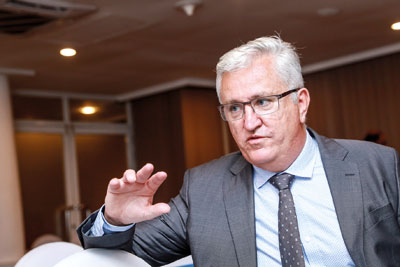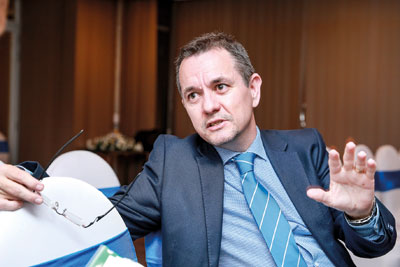A fated encounter with the best of James Cook University-
 Q: What is the focus area of Tropical Environments and Societies as specialization?
Q: What is the focus area of Tropical Environments and Societies as specialization?
Tropical Environments and Societies is a federation of three academic colleges; College of Science and Engineering, College of Arts, Society and Education and the College of Business Law and Governance. Instead of a single specialisation, JCU is offering a range of specialisations from Science, Engineering, Arts, Social Sciences and Humanities, Business Laws. It is a diverse and comprehensive set of specialisations; at Bachelors, Masters and PhD levels.
JCU gain pride due to its pedagogy; the approach to learning and teaching. The University is blessed with a beautiful location in North East Queensland, which holds significant learning and teaching infrastructure. This enables the university take the students out into the fields. There is a learning facility in close proximity to the Great Barrier Reef, and this is a paradise for Marine Biology students. There is a cattle station in the interior of the neighboruhood where the veterinarian students thrive.
This proves that JCU emphasizes experiential learning; the students receive hands-on experience in a real world setting. It’s results are proven to be effective, and it has molded highly professional individuals. JCU is highly proud of it’s graduate output. Last year, all the Civil Engineering students of the batch received employment before graduation; ensuring 100% employability.
The location and cultures might differ, but every environment and society offer similar sets of opportunities and challenges. The future of the world belongs to the tropics. A majority of the young generation lives in the tropics, and what is observed here is a great demographic dividend. There is a growth of young people who create new enterprises, thus reshaping communities and countries.
On the other hand, the tropics have to face severe challenges. Some of them are associated with managing changing demographies. Adapting to climate change is another complication. Managing the issues of National Economic Development in the face of demand for sustainability. These challenges are remarkably common across the tropical world.
JCU is a research intensive university. We believe what makes a university as opposed to a training college is that the university brings research into the classroom.
JCU produces graduates of two calibers. A vast majority are fully accomplished professionals who are ready to seek employment. The other segment are those who are ready to conduct research and build a career in that field. Those students opt for a PhD and bloom into specialist researchers in a given field.
The most important thing I have gained is an international perspective. Its a prestigious university which has 2 campuses in Australia and Singapore. We think about ourself not merely as an Australian university,but as a university of the tropical world. This gave me the perspective which I didn’t have earlier.
Its cliche to talk about globalization, but it really is critical to understand that the future of work is global and that means career opportunities are present in any end of the world. That has huge implications for education. It means that the education as a product needs to be internationalised, and that is one of the major reasons for my visit to Sri Lanka.
 Professor Ron White-
Professor Ron White-
JCU is transitioning into a globally focused institution. Historically, Science and Engineering of JCU has been focused on natural sciences; Marine and Terrestrial Biology and Geo-Sciences. The College of Science and Engineering is broadening its directions by capitalising on innovations and emerging digital technologies and their applications.
New specializations which are highly demanded in the contemporary world have been introduced. These specialisations include ‘The Internet of Things’, Information Technology and Data Science (JCU’s Master of Data Science program has become the biggest of its kind in Australia). These give emphasis and application to interesting concepts like ‘Big Data and Machine Learning’.
As mentioned, JCU offers degrees in Internet of Things, Data Science, Information and Technology and Engineering in addition to Marine Science and the suite of Science programs ranging from Aquaculture through to Zoology. Apart from the specializations, JCU has established associations with reputed industrial giants and research facilities which provide students with state of the art research labs, and internship opportunities whenever the need dictates.
The college offers over 30 degree programs in the Science and Engineering division. It is evident that the College of Science and Engineering has produced many graduates which have excelled in diverse fields; from Agriculture and Engineering to Marine Biology and IT as well as the fundamental disciplines of Mathematics, Physics and Chemistry.
It is fair to say that the global reputation and ranking of JCU is based on two disciplines within the College of Science and Engineering. The university is the 1st at Marine Biology in the world and rated 2nd in Bio-diversity conservation. These two programmes are world renown and highly coveted. A part of the agenda for our visit to Sri Lanka is to expose Sri Lankan students to this world class education together with emerging areas in the digital technologies.
Graduates who leave the university are happy and excited for their bright futures, and a majority personally express their enthusiasm upon receiving employment, or when a new breakthrough is achieved. The performance of the university and its graduateshas been given 5 stars by respective employers.
During our visit to Sri Lanka we have engaged with a past graduate of the College of Science and Engineering. He was very enthusiastic having finished a PhD in Civil Engineering, and claimed ‘My experiences during my education at JCU and the College of Science and Engineering has been transformational’,and thanked JCU for facilitating this transformation. Many of our graduates have gone on to great careers within in industry or at high quality research and educational institutions. A few have went on to start their own business ventures; thus giving birth to new entrepreneurs to the world..
I have a personal connection with James Cook University, since I spent my childhood in there. I am honoured to be a student and graduate of James Cook University, since my education has laid the foundation for my career to present.
As a theoretical physicist, JCU laid a platform me to engage throughout the world and conduct research in many different subject matters, including how to better understand how anti-matter interacts with biological matter as a mechanism to detect cancer, the use of plasma discharges to revolutionise and miniaturise the microelectronic device fabrication, through to development of non-invasive and rapid spectroscopic techniques to assess food safety and quality.
For me, this platform provided by JCU has been invaluable, and this research has been impactful, specially for the tropics.
Q: How do you visualise the future of Science and Engineering, and what role will JCU play in that future?
The mission of JCU isto improve the life of the tropics worldwide. I am now part of the team that is helping enhance JCU’s reputation globally through active partnerships with world leading institutions and organisations – some of which we have found in Sri Lanka. Science and Engineering is key to addressing the major problems in industry and society, and the College of Science and Engineering is focused on these through world class research and education.


